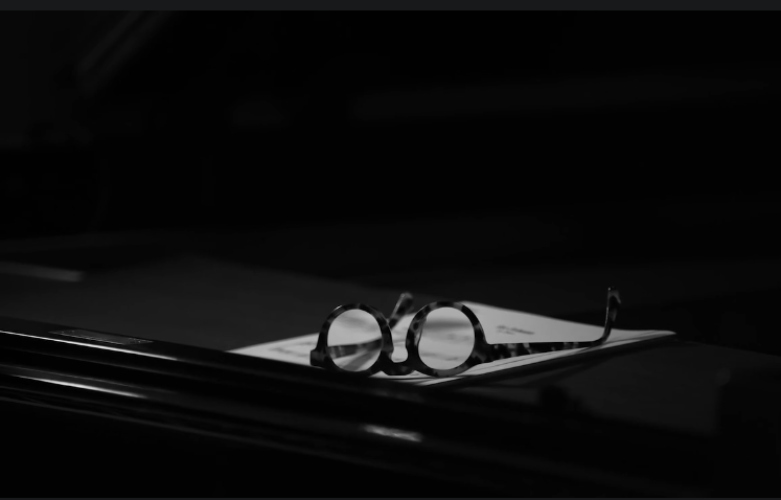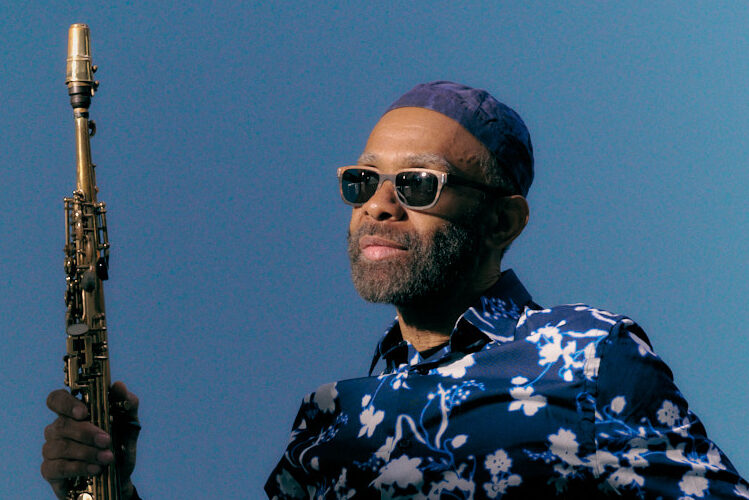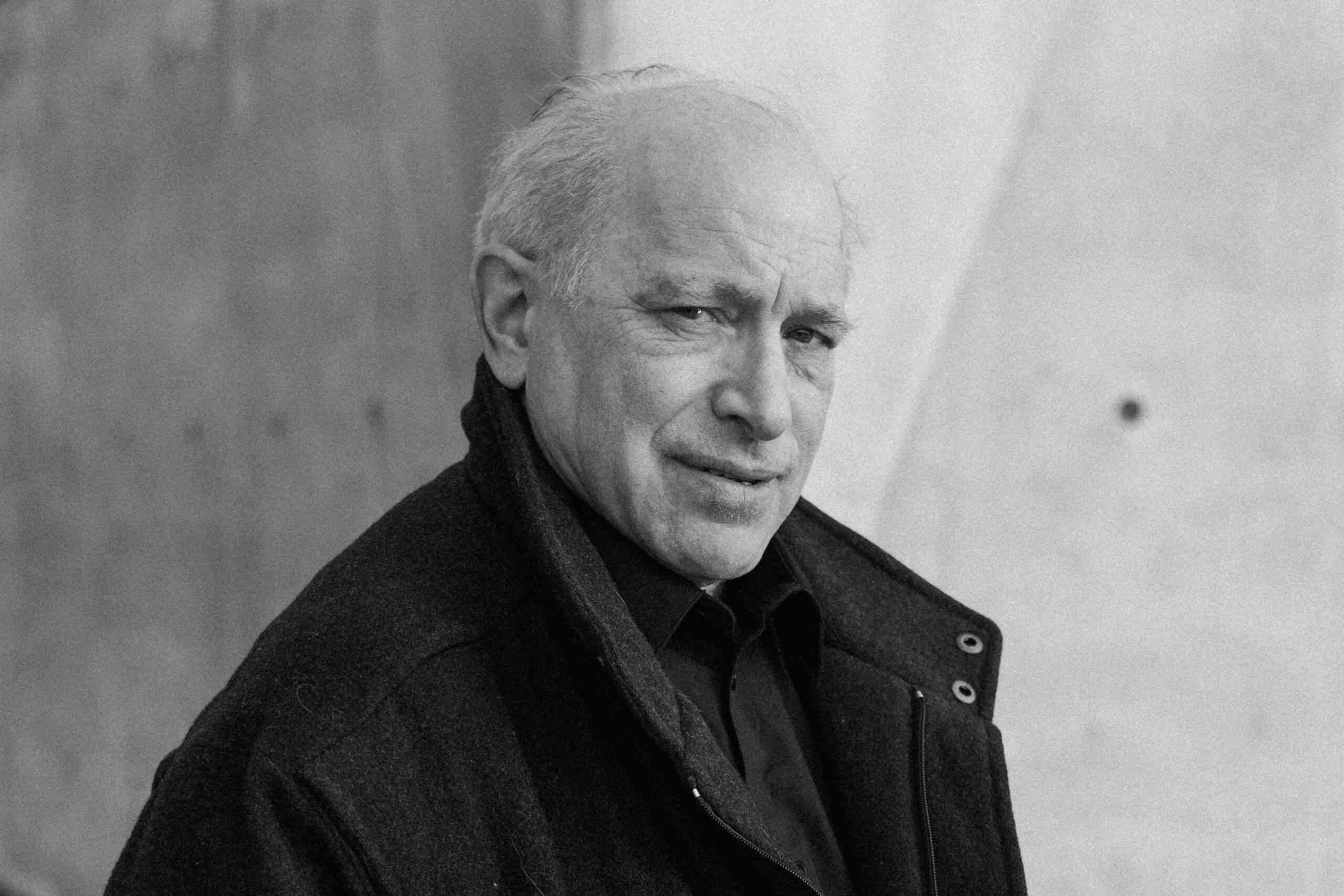Complex Dream: A Conversation with Rubin Kodheli on his Music and Remembering Ryuichi Sakamoto
|
Getting your Trinity Audio player ready...
|
On March 28, 2023, the world lost one of its great composers, Ryuichi Sakamoto. Although emotionally powerful, Mr. Sakamoto’s work is difficult to characterize. He drew inspiration from Western classical music, including minimalism. But he was also an electronic music pioneer. In fact, it was not uncommon for his acoustic work to almost sound electronic at times. While sonic ideas from his native Japan can be heard in his work, Sakamoto also explored the music of Brazil and other places worldwide. His album Favorite Visions (Nippin Columbia, 1983) is ostensibly an avant-garde jazz recording. Above all, Sakamoto was an ardent experimenter. The breadth of his musical interests seems to come from his lifelong steadfast refusal to allow his art to be labeled and his dedication to presenting music fully his own. Even his early work with the electronic group Yellow Magic Orchestra evinces a desire to step outside of preconceptions and stereotypes as the group’s name subtly undermines the racialized undertones of so-called “exotica music.” As Sakamoto stated in 2018, “I was very sure I didn’t want to belong to anything. I just wanted to be [an] individual.” In this vein of faithfulness to individual expression, Sakamoto finds a kindred spirit in cellist Rubin Kodheli.
Kodheli’s expansive view of music can be seen by merely looking at the list of artists he has collaborated with throughout his career thus far. In addition to Sakamoto himself, Kodheli’s credits include work with Philip Glass, Laurie Anderson, Henry Threadgill, Tyshawn Sorey, Joan Jett, and Snoop Dogg. While drawing inspiration from the Western classical tradition, the contributions of artists outside that realm, Jimi Hendrix as one example, are no less significant to him. As a result, Kodheli’s music often finds him finding ways to simultaneously capture the beautiful timbre of his instrument and sound more like a guitarist, a drummer, or a singer than a cellist. His most recent recording, Departure (self-release, 2023) has already been covered significantly on this site.
On January 17, 2024, as part of Winter Jazzfest, Kodheli will be at Roulette Intermedium to curate and perform in a concert dedicated to Sakamoto’s memory. Joining him will be an ensemble of several other artists who worked with the legendary composer, including special guests DJ Spooky and Yuka C. Honda. A month later, he will return to Roulette with his trio – with Trevor Dunn and Brian Chase – augmented by Mary Halvorson. We sat down with Kodheli to discuss both events, his own music, and the brilliance of Ryuichi Sakamoto.
PostGenre: How and when did you start playing cello?
Rubin Kodheli: I started studying cello at age seven. I’m originally from Albania, and children there take an ear training test and then are assigned an instrument partly based on their physique; what their hands look like. So, there was a little bit of vetting.
PG: When did you decide you wanted to do more than traditional Western classical music?
RK: I switched my mentality of what to play on the cello after hearing Jimi Hendrix’s music. I met one of my friends, Jesse Mills when we both studied at Julliard. He has an incredible knowledge of music outside of classical music and introduced me to Hendrix’s music. Jesse’s also a great composer himself.
The first time I listened to Hendrix, time stopped. It made so much more sense than music that came from practicing fingerings. What’s amazing is that I feel Hendrix didn’t focus on technical stuff. He was naturally gifted, and the inertia of his sound was something inexplicable. He poured his essential being into his music. His talent is hard to define. It’s almost as if every song he wrote was a happy accident. There are composers like Stockhausen who think out incredible music. And then there’s someone like Hendrix who shows up, improvises the Star Spangled Banner in front of a massive crowd, and explores sounds imagining the Valleys of Neptune.
PG: So, do you find that you listen to more guitar music than cello?
RK: Yes. The sensibility of the guitar is so close to the cello. I found out about other guitarists through Hendrix. I feel in similar ways when listening to great saxophonists. [John] Coltrane had a massive range. But it is usually music by guitar players and composers to which I feel the closest.
PG: To point to a specific innovative guitarist, your trio will perform with Mary Halvorson at Roulette on February 18th. What do you think Mary will add to the trio?
RK: I am a huge fan of Mary’s music; it’s awesome. I feel that music is primarily a conversation. Mary, Trevor [Dunn], and Brian [Chase] have great conversations with each other. They make everyone want to play freely. The conversation leads to strong yet unpredictable music.
PG: Mary’s new album includes a track featuring Laurie Anderson. You have also worked with Laurie, including in a group with her and Christian McBride. How did that trio come together, and are there any plans to record?
RK: The trio came together somewhat randomly – the sort of thing that could happen only in New York. Before the trio, I had done several duo shows with Laurie. I was working intensely with her a lot at one point. Around that time, the actress Gina Gershon connected Laurie with Christian, and the trio came from there. Our first show was at Town Hall in 2017, and we did one or two additional performances after that. I honestly don’t know if we will record at some point, but I’d be greatly interested if the opportunity arose.
PG: One of those performances was at the 2017 Newport Jazz Festival. The trio sounded incredible.
RK: I’m glad you saw that. The performance at Newport happened around the time Christian became Artistic Director for the festival. That is very cool you were there.
PG: The setting for that performance was also very interesting. It had poured heavily all day, and just as the three of you took to the stage, there was an unexpected calm to the storm.
RK: My god, man, that’s right! So much of the hair on my bow was breaking because of the humidity. I think that the whole weekend was a little rainy. I give all the performers credit for sticking it out in the rain that weekend.
PG: Going back to your performance at Roulette, about a month before – January 17th – your trio date with Mary, you will be there for another event. As part of Winter Jazzfest, you will be there curating and performing in a tribute to Ryuichi Sakamoto.
RK: That’s right.
PG: How did the tribute come together?
RK: Well, when I heard the news that Ryuichi had passed, I felt we needed to put on an event where his New York friends and colleagues could honor him in performance. My friend Meg Okura created her own group that performs Ryuichi Sakamoto’s music. She is also a huge admirer and fan of Ryuichi’s music. So, right after the sad news that Ryuichi passed, I spoke to [Winter Jazzfest founder and producer] Brice Rosenbloom and told him how I thought we should do a concert, possibly with Meg’s ensemble. Brice was on board, it was a no-brainer, a mutual feeling. That is how we started planning for the performance.
PG: So, what does your role as curator entail?
RK: It’s a little bit like being an artistic director. I use the term “curator” because I view this group as an opportunity for everyone to be a little bit of an artistic director for themselves and the project. Ultimately, we are all doing this as a tribute and a way to celebrate Ryuichi. His music has had an incredible impact on us. It connects us. We are also privileged to have Michael Sakamoto [Artistic Director at UMass Amherst] join us as a Butoh dancer in his collaboration with DJ Spooky.
PG: Do you plan to primarily emphasize Ryuichi’s electronic music or his classical output?
RK: There will be timbres of both an acoustic sound and an electronic sound. As far as the electronic component, we asked DJ Spooky and Yuka C. Honda to join us. They are both fascinating composers and terrific musical thinkers. They both worked with Ryuichi and knew him, which again personalizes this performance. I am ecstatic about the collaboration.
The Ensemble consists of flute, clarinet, violin, cello, bass, and piano, which will make for a great contrast with the electronic compositions and arrangements by Yuka and [DJ Spooky]. The musicians are all improvisers as well. We will adapt to the mood and feeling of any composition. Everyone in the Sakamoto Tribute Ensemble is an amazing and accomplished band leader in their own right.
PG: Will you be playing your electric cello or an acoustic one?
RK: There may be a chance that I play the Ned Steinberger electric cello for one piece. But I will mostly use an acoustic cello with a Piezo pickup, which allows me to incorporate things like a delay pedal.
One thing that I should mention is that Ryuichi’s knowledge of cello technique was mind-boggling. I didn’t know that he knew so much. I was in shock for some time.
PG: Going back, when did you first discover Sakamoto’s music, and how did you end up working with him?
RK: Living in New York, I had heard his name so many times. A colleague and friend, violinist Judy Kang, introduced us in 2011 at Avatar Studios. The same day I met Mr. Sakamoto, I recorded music with him. I was sight-reading music at that session. I hadn’t received the music before we recorded; he wanted to see what we could do in the moment without advanced preparation. We ended up recording the trio piece “Timeless Passion.”
Sometime after we recorded that piece, Ryuichi’s manager emailed me to ask me to go to his studio in the West Village. He was working on the soundtrack to the film “The Revenant.” He had called me in to play one of the melodic themes he was composing. He was interested in musical camaraderie.
PG: What did you learn the most from working with him?
RK: I was so moved when I worked with him because I couldn’t believe the amount of knowledge he had about music. He knew a lot about French music and the Divisi Sonority. I am also a huge fan of the Brazilian cellist Jacques Morelenbaum, and when I heard he collaborated with Judy and Ryuichi, I was very pleased. Ryuichi had such a tremendous range. Of course, there is also his electronic beginnings. Often, to provide context, we say that a composer’s work resembles that of some other composer. But it is very dangerous to say that about Ryuichi because he could go in so many directions. When we were working on the theme for “The Revenant”, he would show me parts of his favorite notation of Luciano Berio’s ‘Sequenza’, for instance.
It also blows me away that a composer can make piano compositions based on the sounds of rain or trees. He did that sort of thing on so many levels. He is so fascinating.
PG: He had the power to make dreamlike music out of complex ideas.
RK: Yes, Ryuichi was a master at that.
PG: Do you have a sense of how your experience with him may have shaped your music?
RK: Well, the best thing about a truly incredible artist is that even if your music doesn’t sound like theirs, they are still part of your work. Their influence is still in your music somewhere. Just last year in May, I covered Yellow Magic Orchestra at Main Drag Music with Jon Nelson on trumpet and Eric Huebner on piano. The music lent itself to a more classical interpretation thanks to Ryuichi’s brilliance and partly due to the production work handled by our friend, Dan Leibel of Giant Ledge.
As I listen to more and more of Ryuichi’s recorded work, I’m reminded of how hard he worked on his music. He would work four hours on a single phrase. He must have spent countless hours on Thousand Knives (Nippon Columbia, 1978). Every album of his is so amazingly accurate in its vision of sound from beginning to end. He wrote in a symphonic way, even for electronic music. That dedication was an inspiration for my trio. I always keep in mind sounds that can be reproduced with effects and subtle beauty. Sometimes his synthesizers even sounded like French Horns. He paid so much attention to the identity of a sound.
PG: What do you think is Ryuichi Sakamoto’s legacy? It is interesting how, although most would not identify his music as “jazz”, there was significant mourning in the “jazz” community when he passed, and your tribute is part of a “jazz” festival.
RK: Well, I think jazz has always been expansive. When The Bad Plus played Nirvana’s “Smells Like Teen Spirit”, it was jazz even though the original song was grunge. Ryuichi lived in New York for so long, surrounded by “jazz” music. And those influences did come out in his music.
One of Ryuichi’s songs, “A Tribute to N.J.P.”, was dedicated to Nam June Paik, a phenomenal artist from Korea. It couldn’t have more bebop in it. Anyone who hears his line would think it was something by John Coltrane. But, no, it was Ryuichi Sakamoto. Just because he didn’t play jazz in his groups doesn’t mean he did not get something from jazz. He played more classically, and he loved Bach. But I don’t think his music is completely devoid of jazz. He was certainly an improviser too.
But ultimately, in terms of his legacy, I think Ryuichi was a composer first and foremost. He was his own Duke Ellington. His own Debussy. And his own John Cage. He certainly deserves to be celebrated.

Rubin Kodheli’s curated tribute to Ryuichi Sakamoto will take place at 8:00 PM on Wednesday, January 17, 2024 at Roulette Intermedium. The event features Kodheli, DJ Spooky, Yuka C. Honda, Meg Okura, Anne Drummond, Sam Sadigursky, Yotam Ishay, Steve Whipple, Dan Mintseris, Rogerio Bocatto, and special guests. The concert also serves as a fundraiser for Trees For Sakamoto, an organization that honors Sakamoto by planting trees across the globe. The event is a part of Winter Jazzfest and more information can be found on the Festival’s website. More information on Rubin Kodheli is available on his website.



